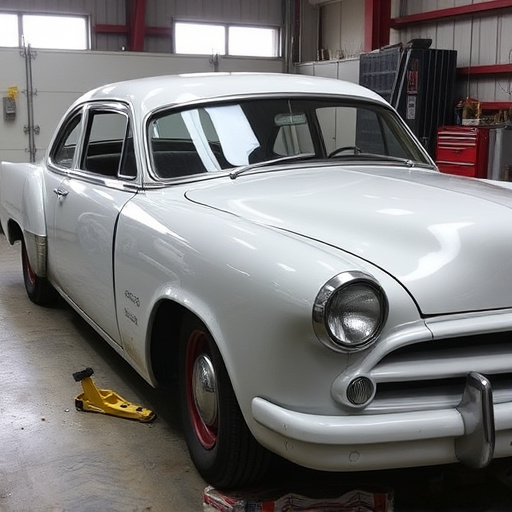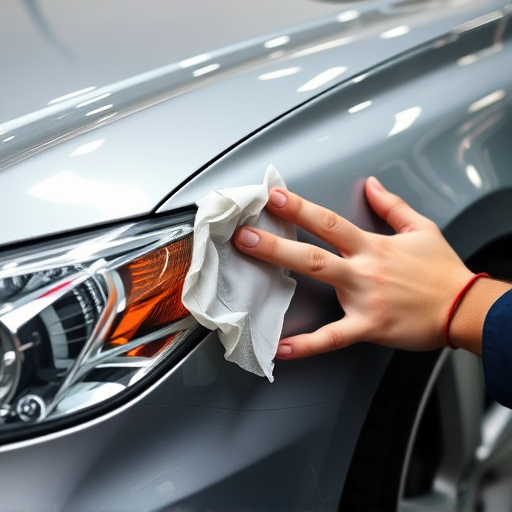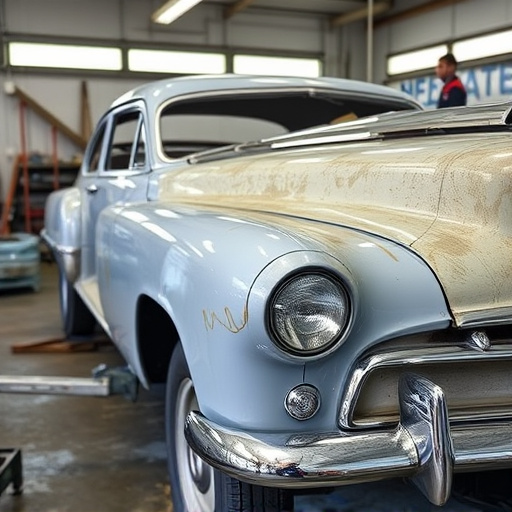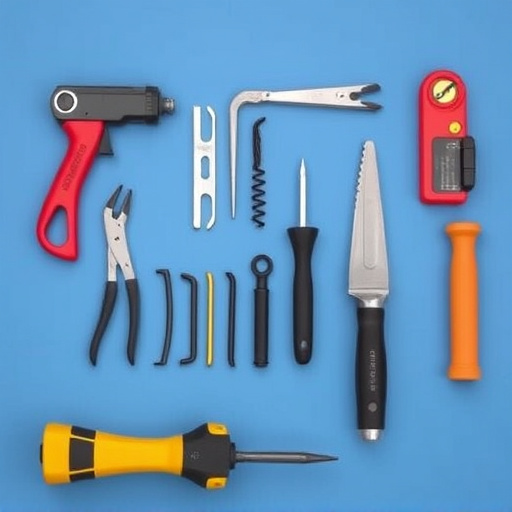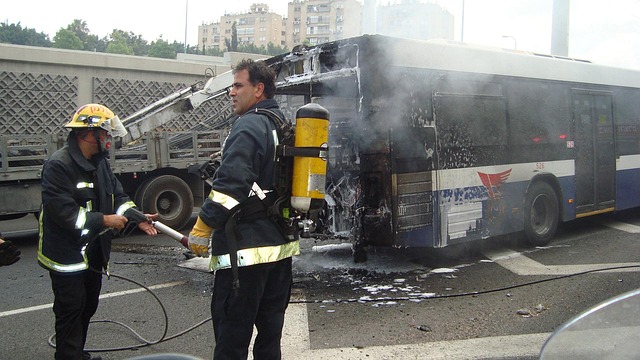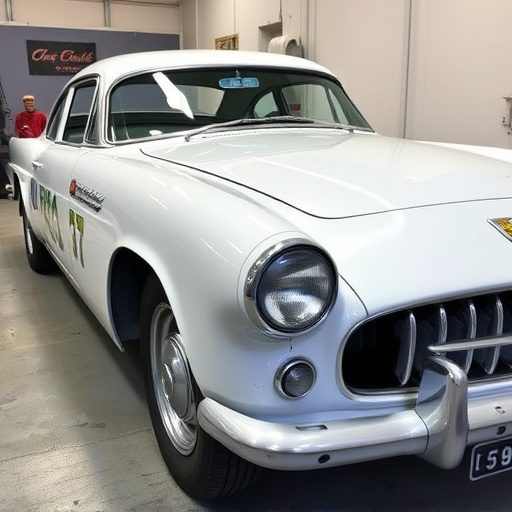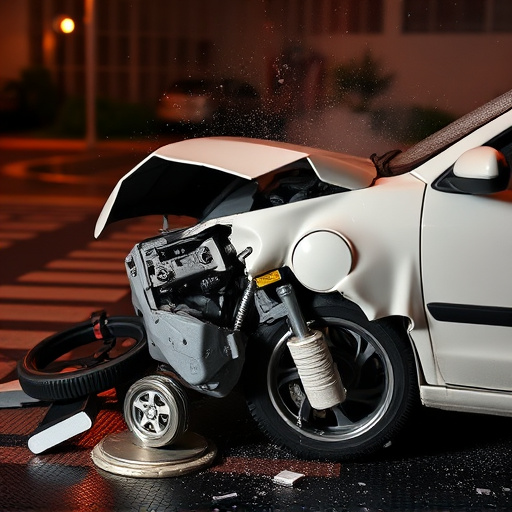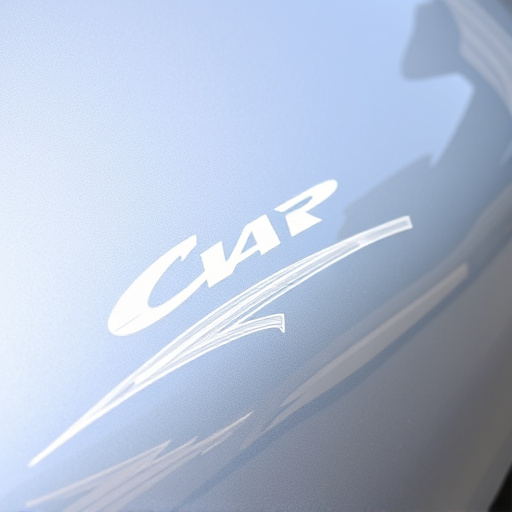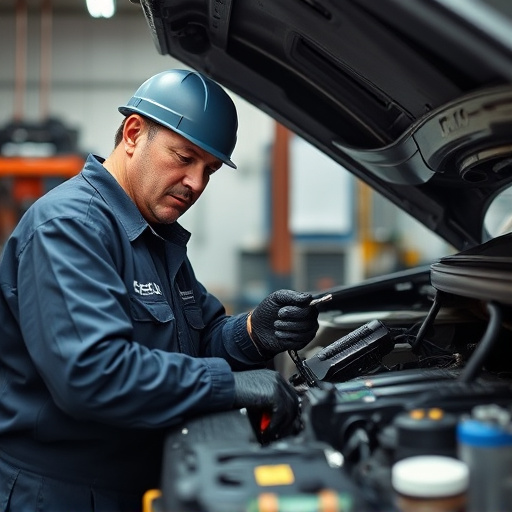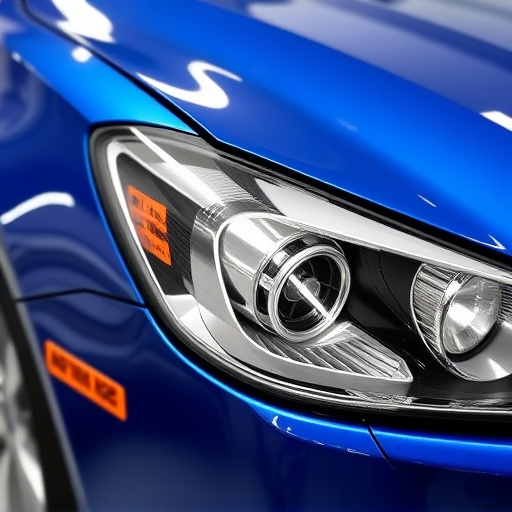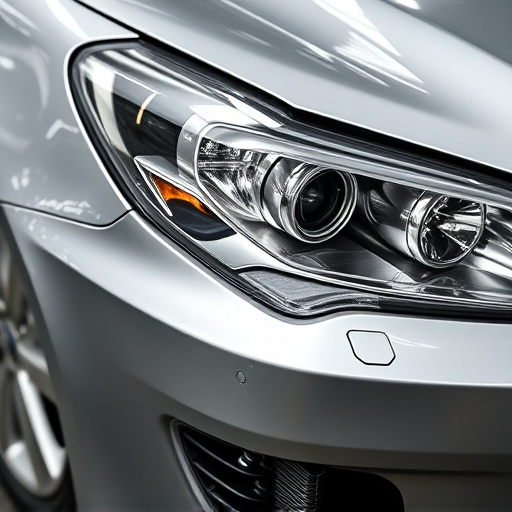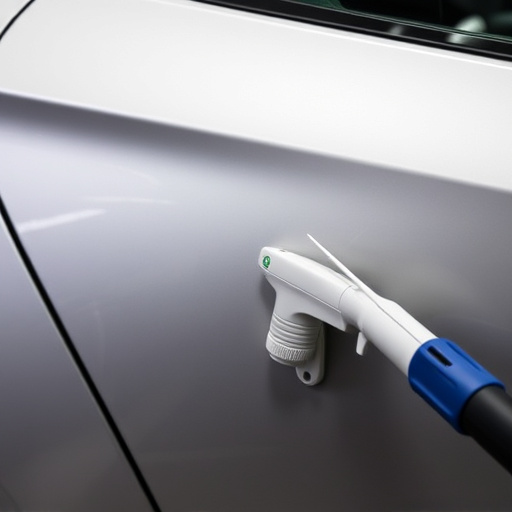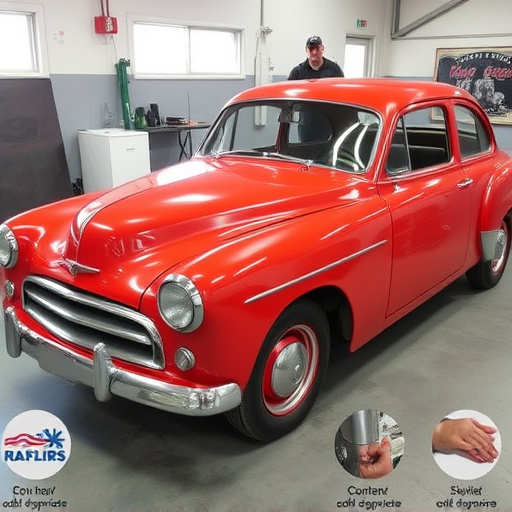Auto shops specializing in compact car body work ensure structural integrity and aesthetic appeal through precision techniques, advanced technologies, and efficient operations. They streamline processes, reduce downtime, and optimize resources, leading to enhanced productivity and customer satisfaction. Upholding quality standards involves meticulous attention to detail, advanced technology, adherence to OEM specs, standardized procedures, high-quality materials, thorough quality control, and effective communication with clients.
In today’s competitive automotive industry, auto shops must excel in every aspect of service, especially when it comes to compact car body work. This intricate process plays a pivotal role in maintaining vehicle aesthetics and structural integrity. Understanding the essentials of compact car body work is crucial for auto shops aiming to enhance efficiency, boost profitability, and deliver superior customer satisfaction. From precision repairs to expert restoration, this critical service segment demands dedicated attention.
- Understanding Compact Car Body Work Essentials
- The Impact on Auto Shop Efficiency and Profitability
- Best Practices for Quality and Customer Satisfaction
Understanding Compact Car Body Work Essentials
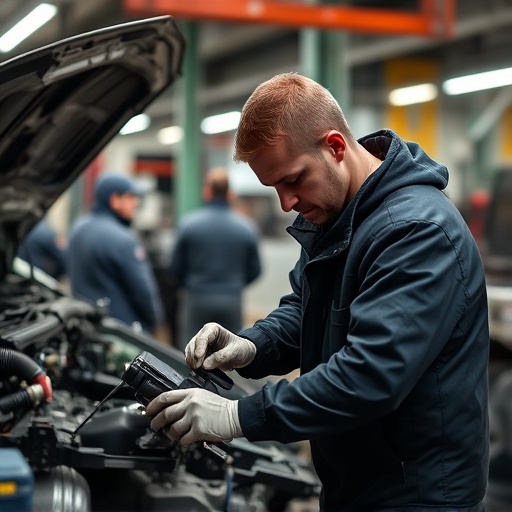
In the realm of compact car body work, auto shops play a pivotal role in maintaining and restoring the structural integrity and aesthetic appeal of these vehicles. Understanding the essentials of compact car bodywork involves recognizing the unique challenges posed by smaller vehicle frames and intricate design elements. Auto repair shops equipped with skilled technicians and specialized tools are adept at handling various tasks, from minor dents and scratches to major accident repairs.
The process encompasses not just auto glass replacement but also meticulous panel alignment, paint matching, and ensuring seamless integration of new components. Given the space-efficient designs of compact cars, precision is paramount during repairs. Auto shops that specialize in this domain leverage advanced techniques and technologies to deliver high-quality workmanship, catering to the specific needs of compact car owners who demand both safety and style.
The Impact on Auto Shop Efficiency and Profitability
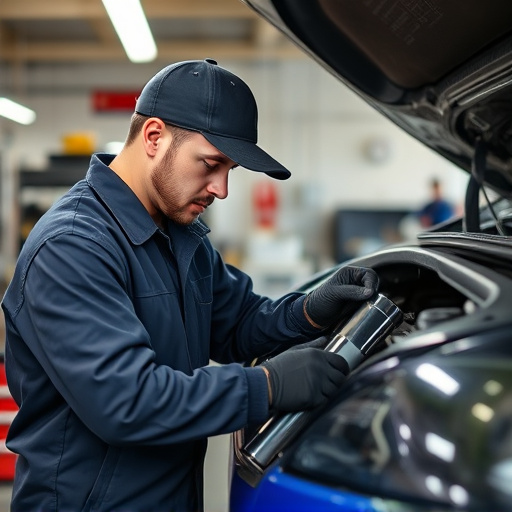
In today’s competitive auto industry, efficient operations are key to maintaining profitability. Compact car body work plays a pivotal role in this regard, streamlining processes within auto shops. By specializing in this area, workshops can optimize their resources and reduce downtime. Skilled technicians capable of handling compact car models swiftly and accurately contribute significantly to enhanced productivity. This expertise enables them to offer faster turnaround times for repairs and customizations, thereby increasing customer satisfaction and retention.
Moreover, the precision required for compact car body work translates into reduced material waste and lower labor costs. Auto shops can minimize expenses by efficiently utilizing parts and materials, ensuring every job is executed with meticulous care. For instance, a shop specializing in Mercedes-Benz collision repair or classic car restoration would find that their expertise in compact car body work allows them to manage complex repairs more effectively, ultimately boosting overall profitability.
Best Practices for Quality and Customer Satisfaction
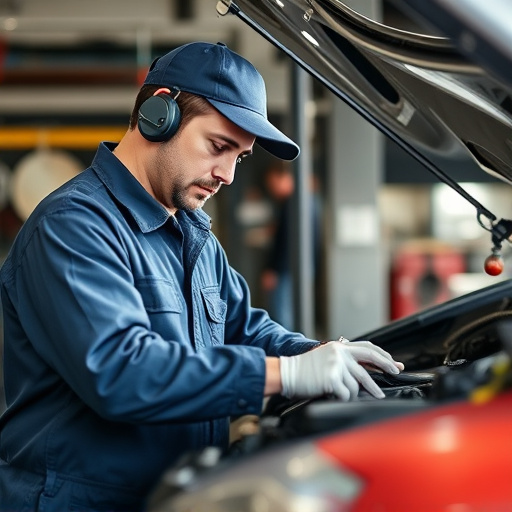
At auto shops catering to compact car body work, upholding quality standards is paramount to ensuring customer satisfaction. Best practices involve meticulous attention to detail during every stage of the repair process. This includes accurate damage assessment, utilizing advanced technology for measurements and repairs, and adhering to original equipment manufacturer (OEM) specifications. Trained technicians should follow standardized procedures, employ high-quality materials, and conduct thorough quality control checks to guarantee that each compact car returns to its pre-incident condition or even exceeds it in terms of aesthetics and performance.
Implementing efficient communication strategies is another key aspect. Auto shops should maintain transparent dialogue with clients throughout the repair journey, keeping them informed about progress, addressing concerns promptly, and obtaining their approval before proceeding with any significant work. Integrating customer feedback mechanisms can further refine vehicle repair services, fostering a culture of continuous improvement that benefits both the shop’s reputation and client satisfaction levels.
Compact car body work is a specialized yet essential service in auto shops, offering significant advantages in efficiency and profitability. By understanding the fundamentals and implementing best practices, auto shop owners can enhance customer satisfaction while ensuring high-quality repairs. This tailored approach not only benefits businesses but also contributes to the overall sustainability of compact vehicle ownership, making it a crucial aspect for any modern auto shop to master.

